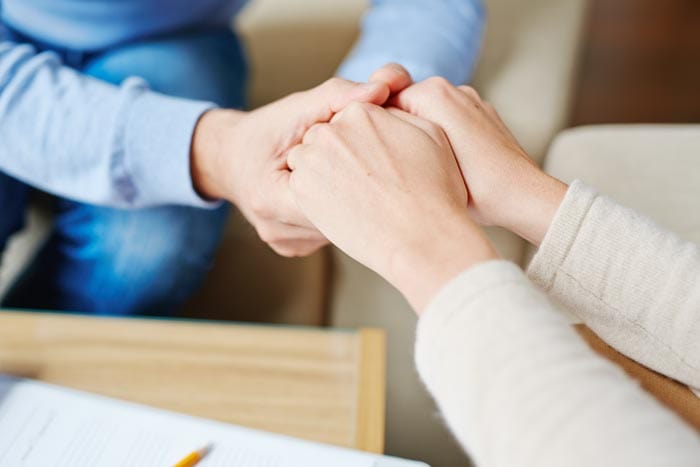A 4-Part Series throughout Mental Health Awareness Month.
Part 1: The Relationship between Mental Health and Physical Health
May is Mental Health Awareness Month. An entire month dedicated to raising awareness about mental health, nurturing our mental health, and breaking down the stigma surrounding mental health disorders.
Our mental health is an encompassing dynamic state of internal equilibrium that enables us to interact with the world around us. Our mental health includes harmonious relationships with others, the ability to recognize and express healthy emotions, basic cognitive skills, the flexibility and ability to cope with life’s stressful changes, and the ability to take care of our physical bodies in a pleasing way.
Our mental health incorporates so much more than a disorder, a depressed mood, or having low energy; our mental health encompasses four significant pillars: physical health, emotional health, cognitive fitness, and physical health.
Each week throughout May, we will be discussing how each one of these four main pillars is an essential aspect of our mental wellness. We will be shining light on positive mental health aspects as a way to raise awareness and #breakthestigma about a topic that is often explored in a negative manner.
Physical health is tightly connected to our mental wellness
When we take care of our bodies, we are also taking care of our mental health, and when we neglect our bodies, we are more at risk for harming our minds.
Gut health and depression
Research is currently being performed to look closely at the connection between bacteria in the gut and depression. A study comprised of two large groups of individuals in Europe found that certain species of gut bacteria were missing from these individuals with depression. The results could not indicate whether the absence of gut bacteria was a cause or effect associated with depression. Studies also found that individuals with depression had an increase in bacteria that is often associated with Crohn’s disease.
Gut health and anxiety
Non-probiotic interventions that affected gut health also showed successful results in reducing anxiety symptoms in individuals. “The researchers conclude: ‘We find that more than half of the studies included showed it was positive to treat anxiety symptoms by regulation of intestinal microbiota.’
Diet: managing mental wellness through diet and digestion
First-line treatment modalities for both anxiety and depression consist of medications and psychotherapy; however, additional lifestyle treatments such as diet can have a positive impact on mental health.
Eating foods that can contribute to a healthy gut that will not eliminate good bacteria and introduce harmful bacteria is key. Removing highly processed foods and replacing them with whole foods that are high in collagen, fiber, and omega-3 fatty acids can help improve your gut bacteria and your mood. Bone broth and salmon can help protect your intestinal wall and prevent a “leaky gut” while high-fiber foods such as broccoli, kale, oats, bananas, and berries can help aid in healthy digestion. Adding foods rich in both probiotics and prebiotics can help aid in gut health. Probiotic foods can help add diversity to your gut, while diets high in prebiotics help feed your gut, healthy bacteria. Sauerkraut, kefir, kimchi, kombucha, apple cider vinegar, and yogurt are foods that are rich in probiotics, whereas jicama asparagus, dandelion greens, onions, garlic, and leeks are all rich in prebiotics.
Exercise and the positives on mental wellbeing
Most of us agree that a sunny walk to the park is good for the soul. Moving our body is known to improve our mood and overall functioning as physical exercise releases endorphins and enkephalins, the body’s natural feel-good hormones. Over time, regular exercise is known to increase specific volumes of brain regions, which improves oxygen and nutrient delivery that support brain growth. Exercise is also known to increase dopamine, a hormone known to increase our “feel-good state” and help battle depression. Research and studies have now shown that exercise reduces the likelihood of depression and also maintains our cognitive health as we age.
Chronic physical health conditions and mental health
The link between chronic pain and depression
Chronic pain is persistent pain that lasts for weeks, months, or even years, and, unlike acute pain that resolves within days or weeks, chronic pain often causes more emotional and lifestyle challenges because of its duration and its unpredictability. Chronic pain often brings on chronic stress, which is tightly linked to depression. Up to 85% of individuals with chronic pain are also affected by depression. Lifestyle modifications such as yoga, modified exercise, and physical therapy can help manage chronic pain while also helping with depression.
We must take more time to nourish our physical bodies so we can also protect our mental health.
Check back next week to read about the connection between our cognition and mental health.
AKUA MIND & BODY IS HERE FOR YOU!
No matter where you are in your journey to recovery, AKUA can help. We understand that life in recovery can be tough. If you are afraid of a relapse, seeking help for the first time, or trying to get back on track, we have a program for you.
We are committed to the health and safety of you and/or your loved ones, and we are FULLY OPEN & OPERATIONAL. At AKUA Mind & Body, the safety of our Clients is our top priority. We are aware of the increased fear and anxiety among most people regarding the current pandemic. Hence, we are doing everything that we can to keep health and safety.
If you or someone you love is struggling with a mental health illness or substance use and addiction disorder, we can help now more than ever! AKUA Mind & Body provides an integrative treatment approach with multiple levels of care from detox and residential to virtual outpatient programs. With several facilities throughout the Sacramento Region, Los Angeles & Orange County Region, and San Diego Region, we aim to provide our clients with a solid foundation for healing and transformation. Gender-specific and Co-ed facilities are available.
Call our 24/7 admissions helpline to seek help today!




